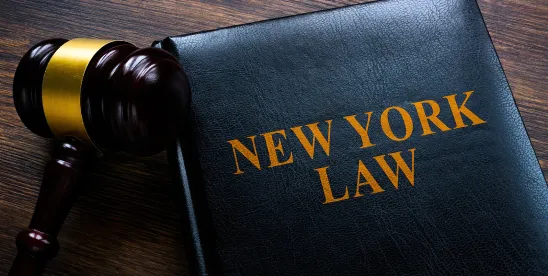As we previously reported here, since May 22, 2025, the National Labor Relations Board (“NLRB” or “Board”) has lacked a quorum of at least three members after the U.S. Supreme Court stayed the reinstatement of former Board Member Gwynne A. Wilcox following her firing by President Trump. As a result, the NLRB cannot issue decisions in representation and unfair labor practice cases. The Board has also been faced with constitutional challenges to its regime. (See here and here.)
To attempt to fill this void, on June 17, 2025, the New York State Assembly overwhelmingly passed legislation—referred to by the co-sponsors as the “NLRB Trigger Bill”—that would amend the New York Labor Relations Act to expand the jurisdiction of the Public Employment Relations Board (“PERB”) to essentially step into the role of the National Labor Relations Board (“NLRB” or “Board”) for private-sector employers.
Currently, PERB only oversees public-sector employees and private-sector employees that the NLRA (or the federal Railway Labor Act) do not cover, such as agricultural workers.
If signed into law by Governor Hochul, the NLRB Trigger Bill would permit PERB to act in the following ways if the NLRB does not “successfully assert” jurisdiction:
- Representation Elections: To certify—upon application and verification—“any bargaining unit previously certified by another state or federal agency.” The plain text of the bill appears to indicate that PERB’s authority would apply only to bargaining units “previously certified” by the NLRB or another state—meaning it could not process representation petitions for new units that have not been certified.
- Adjudicating Unfair Labor Practices / Improper Practices: To exercise jurisdiction over any previously-negotiated collective bargaining agreements and ensure those employment terms remain in full force and effect. Similar to the NLRB, PERB adjudicates unfair labor practices by investigating charges and prosecuting those charges before administrative law judges, and then PERB itself.
Under this bill, PERB’s jurisdiction would not apply where the NLRB “successfully asserts jurisdiction” over employees or employers pursuant to an order issued by an Article III federal court. In other words, if / when the NLRB retains a quorum and asserts jurisdiction, then PERB’s jurisdiction would cease.
Potential Preemption Challenges
If this bill become law, then employers likely will challenge it as preempted under the NLRA based on the Supreme Court’s landmark decision in San Diego Bldg. Trades Council v. Garmon, 359 U.S. 236 (1959). In Garmon, the Court held that where there is even the potential for conflict between the NLRA and state or local law, then such state/local law is preempted. The Court in Garmon reasoned that the purpose of a broad preemption doctrine was to ensure a uniform national labor relations policy overseen by the NLRB—not a patchwork of state and local laws.
California and Massachusetts are considering analogous legislation, and we will closely monitor the progress of these bills, as well as any potential challenges that surface.





 />i
/>i
